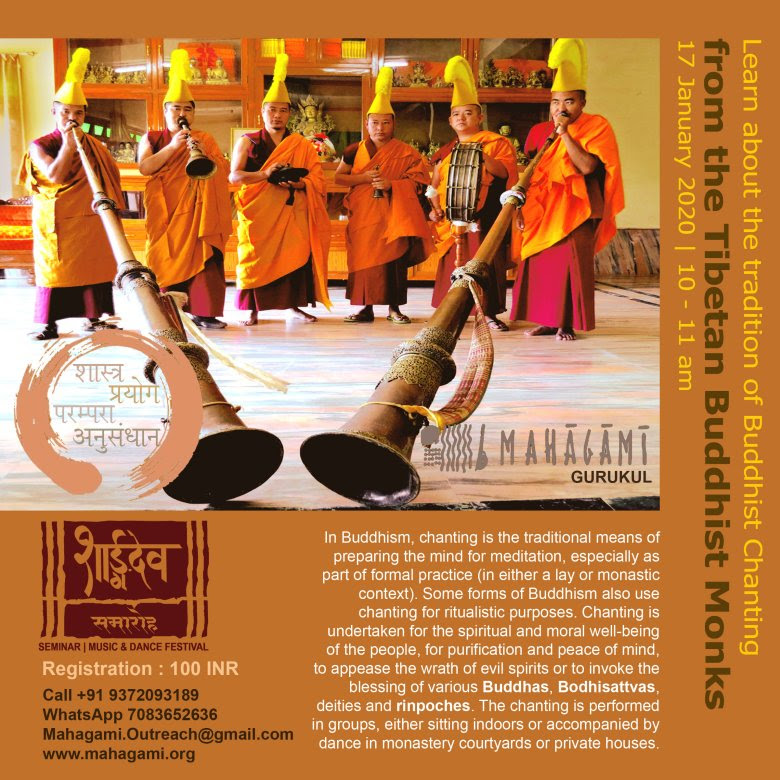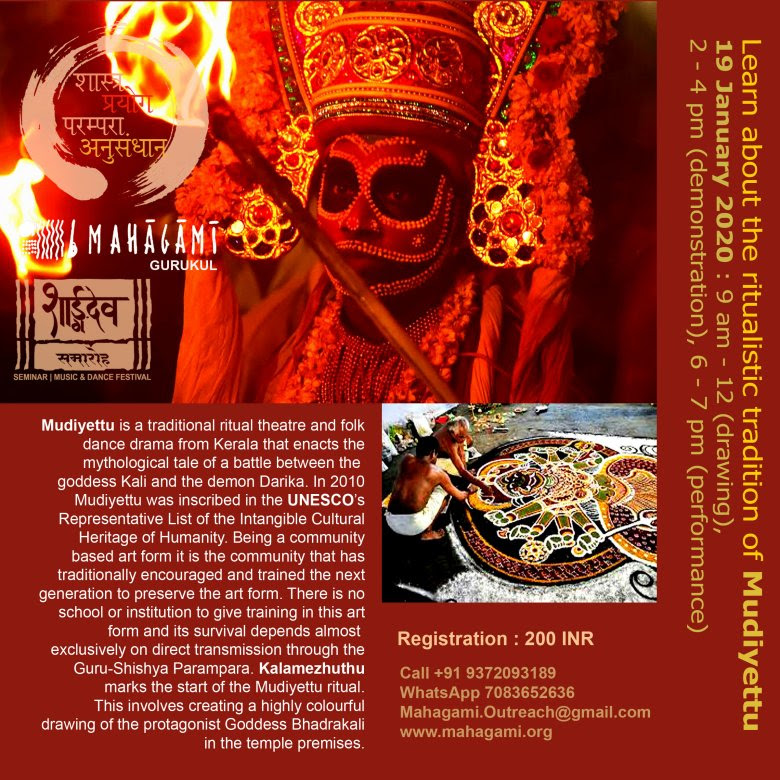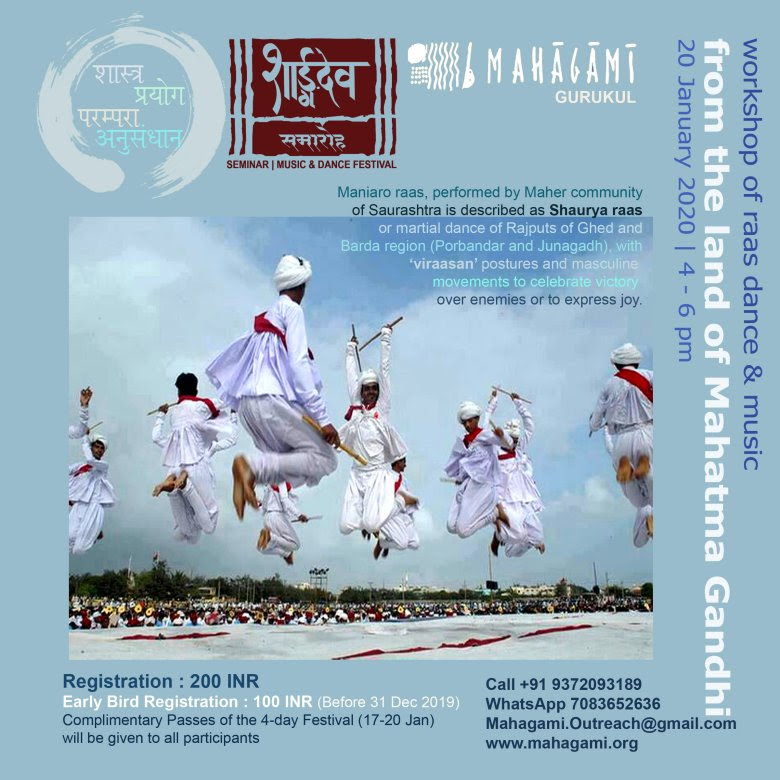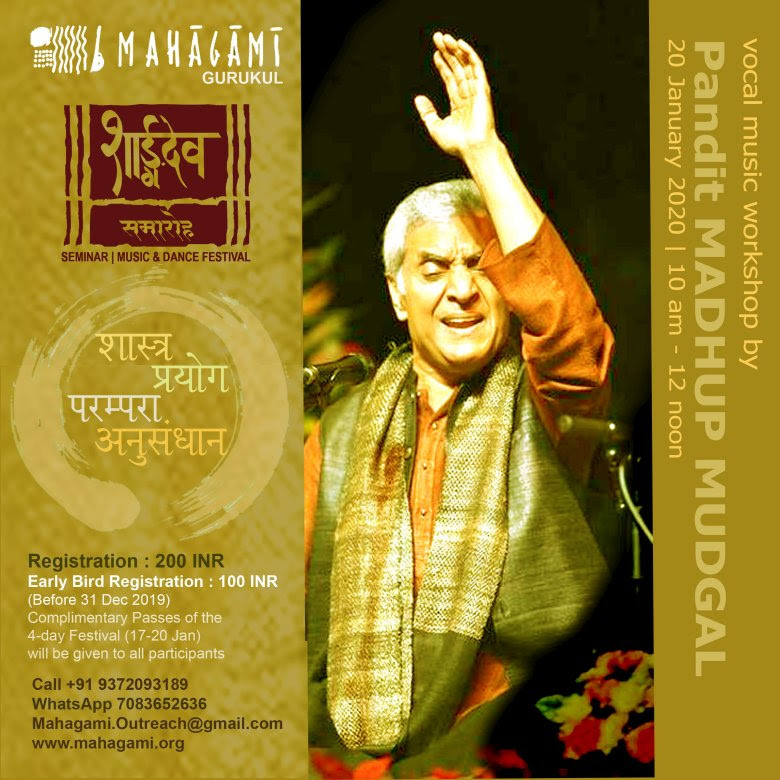
JOIN | WITNESS | LEARN | PARTICIPATE
Mudiyettu | Nat Sankirtan | Gayan Bayan | Buddhist Chanting | Vocal Racital | Kathak and Odissi Ensemble | Shaurya Raas & Maniyaro
ŚĀRŃGADĒVA PRASANG
SEMINAR | 10.30 – 1 PM
ŚĀRŃGADĒVA SAMAROH
PERFORMANCE | 6.30 – 9.30 PM
ŚĀRŃGADĒVA PRAVAH
WORKSHOP | RESEARCH PRESENTATION | 3 – 5 PM
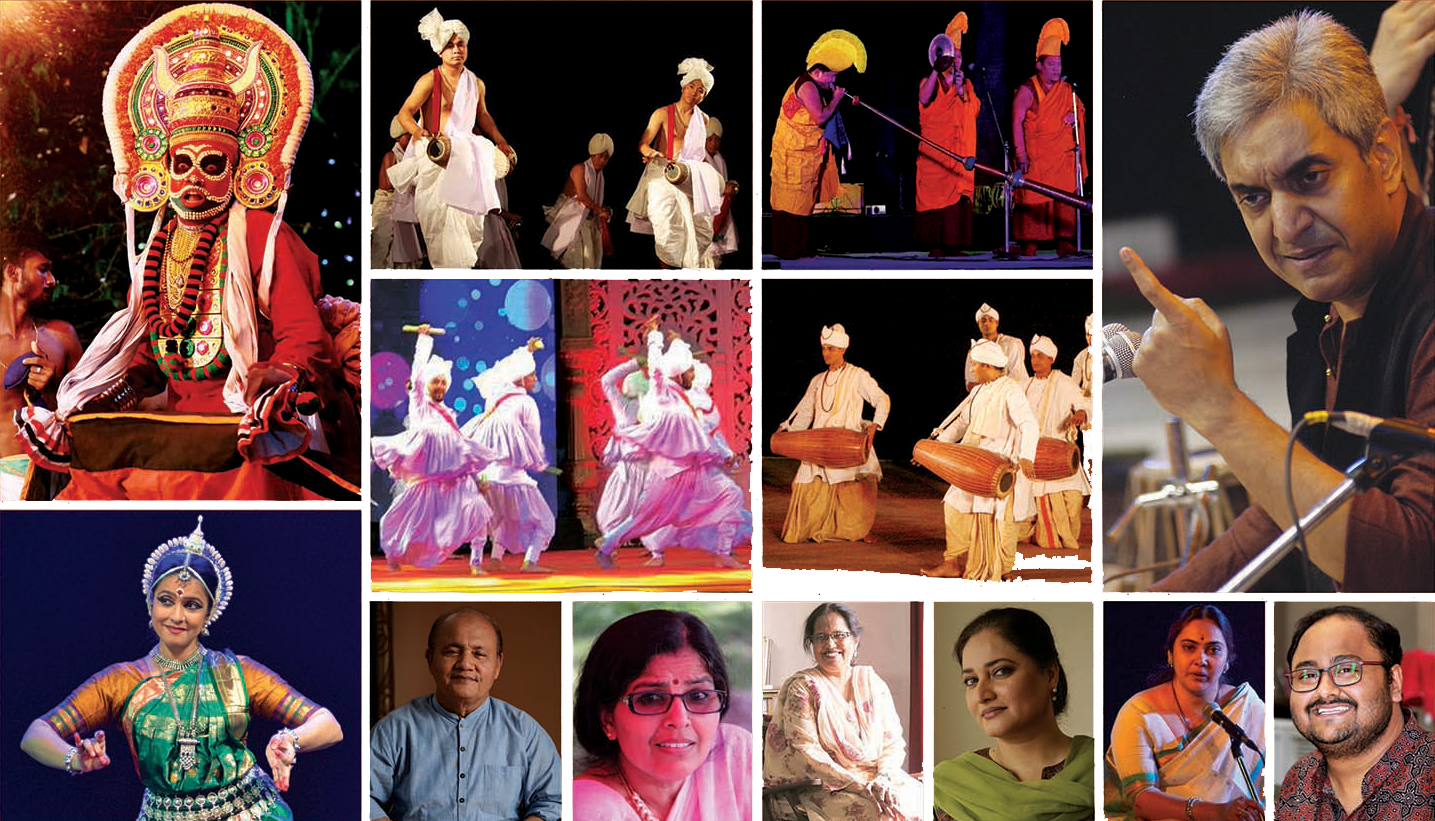
While Research presentations and lec-dems will be in the morning, Seminar and performances / showcase of traditional forms / rare forms / reconstructions will be presented in evenings; we wish to initiate afternoon sessions on explorations of texts / concepts through guided workshops that can be attended by artists of any stream as well as students and learners. Also presentations, work-in-progress of ongoing research or reconstruction are being considered to be included in afternoon sessions. The aim remains to establish a dialogue between Shastra-Prayog-Parampara-Anusandhaan. The journey of these explorations and presentations may lead us to innovative and insightful works by younger artists in years to com.
-
Accommodation facility can be availed
Theme for the 11th SARNGADEVA SAMAROH
-
Impermanence – Change
-
Looking at the inevitable cycle of Arts:
-
Social Need of Arts – Cultural Shift – Social Change – Cultural Need of Society
To mark 150 years of Mahatma Gandhi, whose famous words “Be the change you wish to see in the world” became one of the most powerful aspirations of humankind, we dedicate the 11th edition of the festival to the spirit of Change. Impermanence has been one of the foundations of our ancient wisdom. Buddha had said: ‘Insight into change teaches us to embrace our experiences without clinging to them – to get the most out of them in the present moment by fully appreciating their intensity, in full knowledge that we will soon have to let them go to embrace whatever comes next.’
The festival design seeks to trace a journey from the ritualistic connotations of Indian Arts, to the cultural shifts owing to the socio-political changes; to the changes/adaptations in the art forms; to the growing concerns with respect to preservation of heritage: both tangible and intangible. The cyclic journey takes us towards the growing ‘cultural need’ of society which brings hope with respect to the continuation of a tradition and eternity of impermanence!
Concerts/Presentations/Talks
-
Buddhist Chanting by Monks
-
Nat-Sankirtan by JNMDA (Supported by SNA)
-
Gayan-Bayan by Sattriya artists (Supported by SNA)
-
Nirghoshah: Odissi Ensemble by Mahagami
-
Gharghara: Kathak Ensemble by Mahagami
-
Mudiyettu, Kerela
-
Maniyaaro and Shaurya Raas, Ahmedabad
-
Pandit Madhup Mudgal, New Delhi
-
Dr. P.J. Mahanta
-
Dr. Arshiya Sethi
-
Dr. Chetna Beohar
-
Dr. Karuna Vijayendra
Curated by Parwati Dutta (Director, MAHAGAMI GURUKUL / Dean of Performing Arts, MGM University / Vision Director, VidyaAranyam)
Concept & Background:
Sarngadeva was a 13th-century Indian musicologist and the author of the classical Sanskrit text on music, the Sangeet Ratnakar. The treatise is considered by many to be the most important work after Bharata’s Natya Shastra. Its span includes vocal and instrumental music, as well as dance. Sarngadeva is said to have composed his work in what is now called Aurangabad. MAHAGAMI GURUKUL is a cultural initiative at Aurangabad which has been conceived and headed by Parwati Dutta, and is dedicated to the propagation and teaching of Indian culture for the last 23 years. For the last 10 years, it has also organised an annual festival that includes seminars, performances and interactions around Sarngadeva’s work that aims to establish a dialogue between the written, oral and performing traditions.
SARNGADEVA SAMAROH is organized every year by Mahagami in the land where the great musicologist Sarngadeva created the treatise SANGEET RATNAKAR with an aim to re-connect with the glorious cultural past of this region and to establish the relevance of the text with present-day performing arts. The festival comprises of performances by renowned artists as well as established thinker-artists with focus on the Sangeet Ratnakar and other ancient traditions. Many scholars, gurus, musicologists present research papers and give lecture demonstrations highlighting various aspects of Sangeet Ratnakar in respect to each form of music. The festival caters to the artistic and academic quests of more than 5000 rasikas of music and dance. Students, researchers, teachers of any stream of Indian art will benefit from the seminar, lecture demonstrations and evening performances. This is of great academic and archival value and is an important landmark in the field of research on music texts.
Organised by,

CONTACT DETAILS,
Call +91 8237021054 (Ext. 31 & 33.)
Mobile No: 9372093189
Mahatma Gandhi Mission Sangeet Academy, N6, CIDCO, Aurangabad – 431 003 (India).
Comments
- 1 Comment
- 0 Trackback
-
 December 6, 2022
December 6, 2022
Good Afternoon Ma’am,
I would like to receive the complete registration format. I am also interested to know wether i as an research scholar would be allowed to present my performance.
I will be thankful to hear from you soon.
Thankyou
Rajni Rao
Scholar with Sri Sri University.

